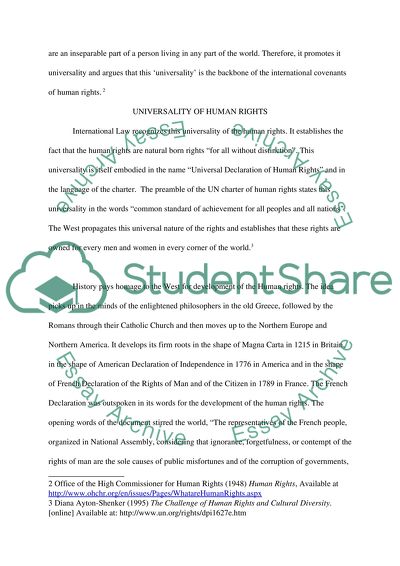Cite this document
(“Universality of Human Rights Essay Example | Topics and Well Written Essays - 2250 words”, n.d.)
Retrieved from https://studentshare.org/law/1404408-critically-evaluate-the-extent-to-which-human
Retrieved from https://studentshare.org/law/1404408-critically-evaluate-the-extent-to-which-human
(Universality of Human Rights Essay Example | Topics and Well Written Essays - 2250 Words)
https://studentshare.org/law/1404408-critically-evaluate-the-extent-to-which-human.
https://studentshare.org/law/1404408-critically-evaluate-the-extent-to-which-human.
“Universality of Human Rights Essay Example | Topics and Well Written Essays - 2250 Words”, n.d. https://studentshare.org/law/1404408-critically-evaluate-the-extent-to-which-human.


